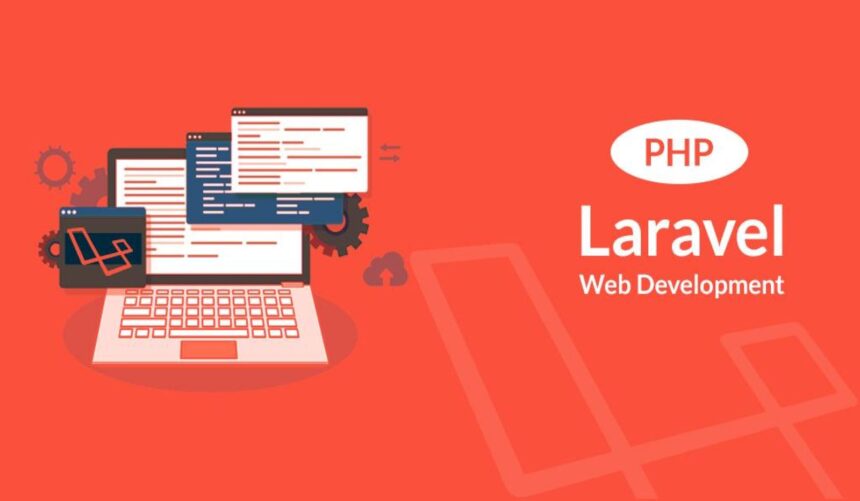When building an e-commerce website, choosing the right framework is crucial to ensure scalability, security, and an excellent user experience. Laravel, a popular PHP framework, has emerged as one of the top choices for Laravel eCommerce development due to its robust architecture, built-in features, and developer-friendly ecosystem.
Here are the top features of Laravel that make it a perfect fit for eCommerce websites
1. MVC Architecture for Organized Development
Laravel follows the Model-View-Controller (MVC) architectural pattern, which helps maintain a clean and organized code structure. This separation of logic, UI, and database layers allows developers to easily manage the project, making it more scalable and efficient. For e-commerce platforms, this architecture helps streamline the development of complex functionalities like product management, cart systems, and payment gateways.
2. Eloquent ORM for Simplified Database Management
Managing data for thousands of products, orders, and users is a key challenge in e-commerce. Laravel’s Eloquent ORM (Object-Relational Mapping) simplifies database management by allowing developers to interact with the database using an expressive, easy-to-understand syntax. Eloquent enables efficient data retrieval and manipulation, making tasks like product filtering, order tracking, and user management smoother.
3. Blade Templating for Seamless UI/UX
User experience plays a critical role in the success of any e-commerce platform. Laravel’s Blade templating engine allows developers to create dynamic and responsive layouts without sacrificing performance. Blade provides an intuitive way to integrate conditional logic and loops into views, which is ideal for features like product pages, checkout flows, and personalized recommendations.
4. Built-in Authentication and Authorization
Security is one of the most important considerations for e-commerce websites, where users entrust sensitive information like passwords and payment details. Laravel offers built-in authentication and authorization features, making it easy to implement secure login, registration, and password reset systems. The framework also provides role-based access control, ensuring only authorized users can access certain areas of the platform, such as admin dashboards or vendor portals.
5. Advanced Security Features
In addition to its authentication tools, Laravel comes equipped with advanced security features like CSRF (Cross-Site Request Forgery) protection, SQL injection prevention, and XSS (Cross-Site Scripting) protection. These built-in security mechanisms protect your e-commerce website from common vulnerabilities, ensuring safe transactions and protecting user data from malicious attacks.
6. Artisan CLI for Automation
Laravel’s Artisan command-line interface (CLI) is a powerful tool that allows developers to automate repetitive tasks, such as database migrations, seeding, and testing. For e-commerce platforms, this can save significant development time when handling tasks like setting up product catalogs, importing inventory, or managing discounts and promotions. Artisan also helps in maintaining the project’s codebase and running scheduled tasks, such as inventory updates or email notifications.
7. Robust API Support for Third-Party Integrations
E-commerce platforms often require integrations with third-party services like payment gateways, shipping providers, and marketing tools. Laravel provides excellent support for building RESTful APIs, making it easy to integrate external services such as Stripe, PayPal, and shipping APIs. Laravel’s API tools also enable developers to create custom APIs, allowing the e-commerce website to interact with mobile apps, CRMs, and other external platforms.
8. Scalability with Queues and Caching
As your e-commerce platform grows, so does the need for handling large amounts of traffic and transactions. Laravel’s built-in support for queues allows you to manage time-consuming tasks like sending emails, processing orders, or updating inventory without affecting the performance of the site. Additionally, Laravel’s caching system improves page load times by storing frequently accessed data, ensuring a faster and smoother experience for users.
9. Multi-Language and Localization Support
For global e-commerce platforms, providing a localized shopping experience is essential. Laravel makes it easy to build multi-language websites with its built-in localization features. You can define language lines in different languages and switch between them easily based on user preferences, making the platform accessible to a global audience.
10. Testing and Debugging Capabilities
Laravel offers robust testing and debugging tools, ensuring that your e-commerce platform functions properly under all circumstances. The framework includes PHPUnit integration for unit testing, which helps developers write tests for various parts of the application, such as the checkout process, payment flow, and inventory management. Laravel’s debugging tools provide insights into errors and performance bottlenecks, enabling quicker fixes and a more stable platform.
Conclusion
Laravel is packed with features that make it a top contender for building e-commerce websites. Its MVC architecture, Eloquent ORM, and Blade templating engine streamline development, while advanced security features and robust API support ensure a secure, feature-rich shopping experience. Whether you’re building a small online store or a large multi-vendor marketplace, Laravel development company provides the scalability, security, and performance needed to succeed in the highly competitive e-commerce space.
By leveraging these powerful features, developers can create custom e-commerce platforms that are fast, secure, and tailored to the unique needs of any business.


